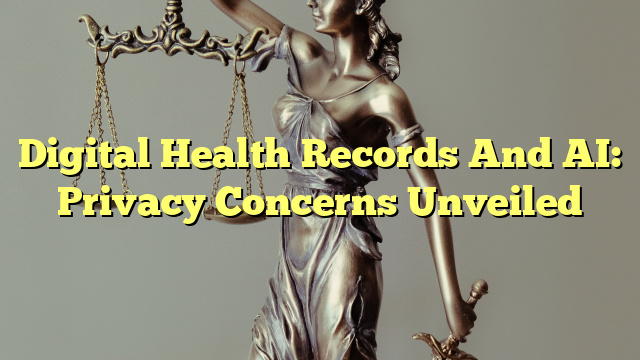Table of Contents
Privacy Concerns with AI in Healthcare
Artificial Intelligence (AI) has revolutionized the healthcare industry, offering new possibilities for diagnosis, treatment, and patient care. However, with the integration of AI into digital health records, privacy concerns have been unveiled.
One major concern is the security of patient data. AI systems require access to vast amounts of personal health information to learn and make accurate predictions. This raises questions about the storage, transmission, and protection of sensitive data.
Another concern is the potential for unauthorized access or breaches of patient data. AI systems are vulnerable to cyberattacks, and if successful, hackers could gain access to sensitive medical records. This not only compromises patient privacy but also puts their health at risk if the data is manipulated or used maliciously.
Furthermore, there is a concern about the potential for AI algorithms to make biased or discriminatory decisions. If the data used to train AI models is biased, it can lead to unequal treatment or misdiagnosis of certain patient populations.
Patient Concerns about Artificial Intelligence and Digital Health
Patients may have various concerns about the use of artificial intelligence in digital health:
- Fear of data breaches and unauthorized access to personal health information
- Concerns about the accuracy and reliability of AI algorithms in making medical decisions
- Worries about the loss of human interaction and personalized care in favor of automated systems
- Anxiety about the potential for AI to replace human healthcare professionals
- Questions about the transparency and accountability of AI systems
Can AI be a Threat to Data Privacy?
Yes, AI can pose a threat to data privacy if not properly implemented and secured. The reliance on large amounts of personal health data makes AI systems attractive targets for hackers. Additionally, the complexity of AI algorithms can make it difficult to detect and prevent unauthorized access or data breaches.
However, with the right security measures, such as encryption, access controls, and regular audits, the risks can be mitigated. It is crucial for healthcare organizations to prioritize data privacy and invest in robust cybersecurity infrastructure to protect patient information.
Who Warns about the Risks of AI for Healthcare?
Several organizations and experts have raised concerns about the risks of AI in healthcare:
- The World Health Organization (WHO) emphasizes the need for ethical guidelines and regulatory frameworks to ensure the responsible use of AI in healthcare.
- The American Medical Association (AMA) has called for transparency and accountability in AI algorithms to prevent bias and discrimination.
- The European Union’s General Data Protection Regulation (GDPR) sets strict rules for the protection of personal data, including healthcare data, and requires organizations to obtain explicit consent for AI processing.
- Privacy advocacy groups, such as the Electronic Frontier Foundation (EFF) and the American Civil Liberties Union (ACLU), highlight the potential risks to privacy and civil liberties posed by AI in healthcare.

